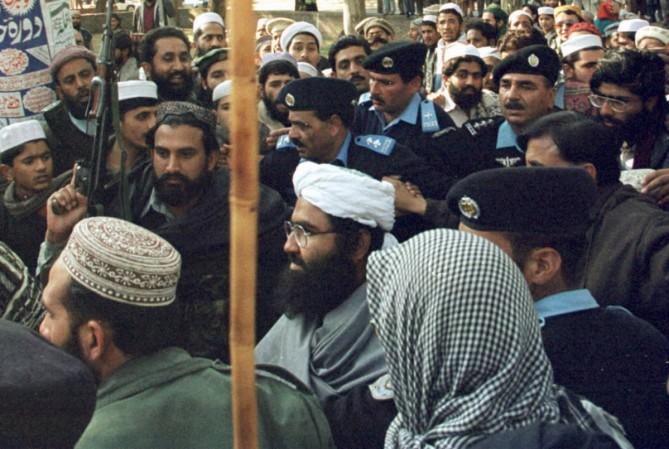China has earned the dubious distinction of being the only Permanent 5 member of the United Nations Security Council (UNSC) which has used its position in the global body to stop the imposition of global sanctions on three terrorists.
On Thursday, China put a technical hold on designating the Pakistan-based Abdul Rauf, the brother of Jaish-e-Mohammed chief Masood Azhar and the number two of Jaish, as a global terrorist. The said proposal was moved by the United States and India. This has led to India, in an unprecedented choice of words, stating that such “double standards” have rendered the credibility of the UNSC’s sanction at an “all-time low”.
The outcome of the Financial Action Task Force (FATF), which is due to execute an on-ground verification of the action taken by Pakistan to control terror and specifically the activities of Jaish-e-Mohammed in the coming weeks, is unlikely to be impacted by this recent development. A favourable report from the FATF team will lead to Pakistan being removed from the “grey list” that will help it gain foreign investments and loans from international bodies more easily. Earlier in June, China had used its position as a P-5 member to put a similar hold on designating Abdul Rehman Makki as a global terrorist.
In both these cases, China has said that it needs time to study the evidence that was placed against them. This similar line was used by China to delay perpetually designating Jaish-e-Mohammed chief Masood Azhar as a global terrorist for years until it finally relented in May 2019. Both Abdul Rauf and Makki, who is the brother-in-law of Lashkar-e-Tayyaba chief Hafiz Saeed, have dossiers spanning multiple pages, that documents their decade-old involvement in terror attacks, mostly in India.
The Ministry of State Security (MSS), the Chinese intelligence agency, too, maintains a separate wing that keeps track of the terror groups operating in Pakistan. Hence, according to Delhi-based officials tracking these developments, the reason given by China that it “needed time” to study the evidence against Makki and Rauf was a “ridiculous” one.
According to officials, China, by using its position in the P-5 to help Makki earlier and Rauf now, was giving a message to the Indian establishment, which it believed was gravitating towards the United States. The joint proposal of the US and India to list Rauf under the 1267 Al-Qaida Sanctions Committee of the UN Security Council, if passed, would have forced Pakistan to take action against him and other individuals, groups, undertakings and entities associated with them. Any member country(ies) which seeks to designate an individual or a group under 1267 has to file specific findings and reasoning in an 8-page document demonstrating that the listing criteria are met.
The details that need to be filled in this 8-page document include the details of any connection with a currently listed individual or entity, information about any other relevant acts or activities of the individual/entity, the nature of the supporting evidence (e.g. intelligence, law enforcement, judicial, media, admissions by subject, etc.) and supporting evidence or documents.
The said meeting, numbered 9109, whose agenda was “Threats to international peace and security” and where Rauf’s case was taken up, was held on 11 August. The monthly rotating presidency of the Security Council for the month of August is with China. India will lead it in December.

